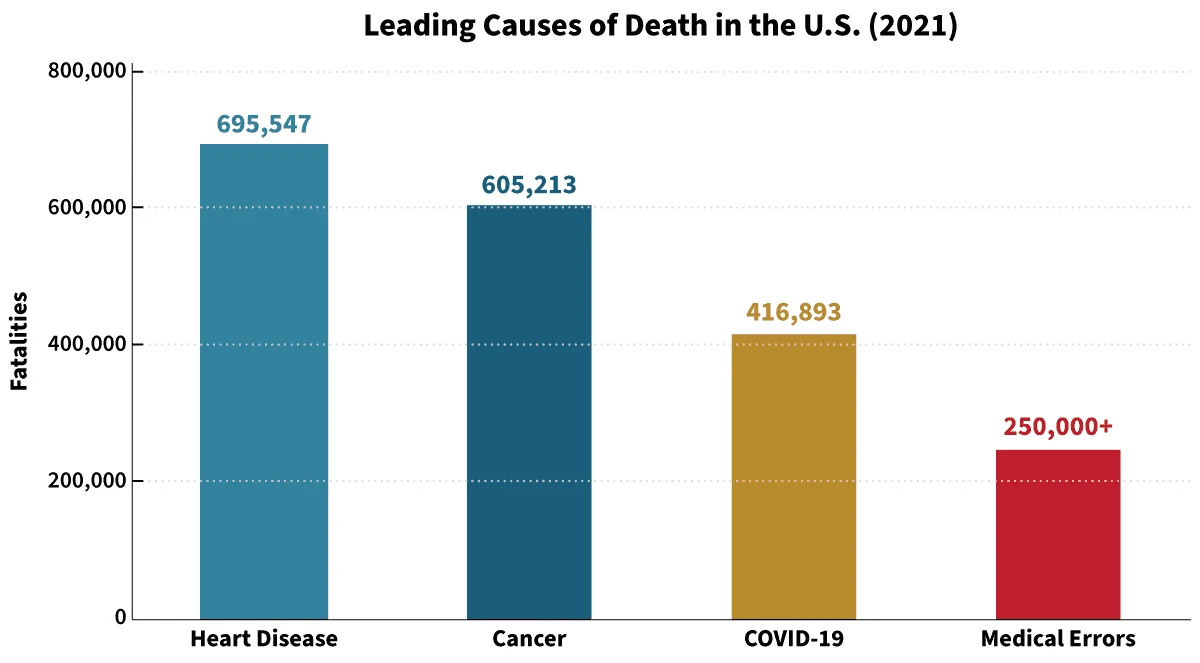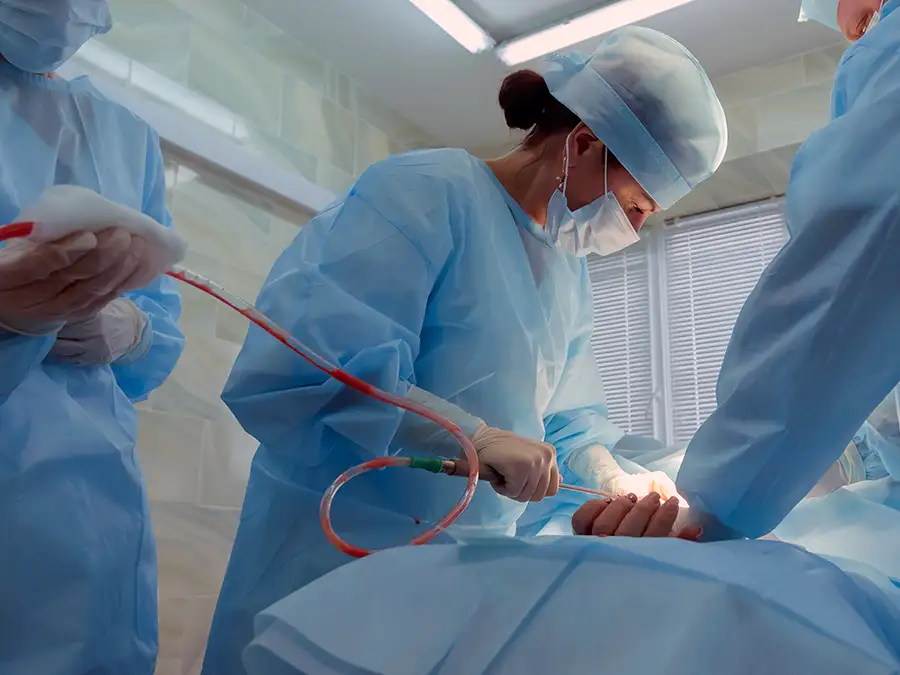No one ever expects to end up in worse physical condition after seeing a doctor or undergoing a surgical procedure, yet medical mistakes can and do occur. In some instances, medical negligence leads to a lifetime of health issues or even wrongful death.
If you or a loved one is the victim of medical negligence in Florida, you need a strong legal advocate in your corner who will fight for your rights and future. At Redondo Law, experienced Miami personal injury attorney Mike Redondo is committed to providing the dedicated representation you need to navigate the complexities of medical malpractice claims.
With a deep understanding of Florida medical malpractice law and a strong track record of securing fair compensation for his clients, Mike can guide you through the legal process to help secure the compensation you deserve.
Not sure if you have legal grounds to file a lawsuit against a Miami doctor or hospital?
Redondo Law offers free consultations to answer your questions and help assess the strength of your potential claim.
What is medical negligence?
If a health care provider deviates from the recognized standard of care when treating a patient, medical negligence may have occurred. The standard of care is defined as what a reasonable medical professional would or would not have done, given the same set of circumstances.
If an act or failure to act leads to a patient’s catastrophic injury or death and the medical professional was not operating under the recognized standard of care, then the patient may have a valid claim for medical negligence.
It’s important to note that medical errors and medical negligence are not always the result of an uncaring medical professional. Doctors, nurses, surgeons, and others employed in the medical industry are often fatigued from working long hours or may simply lack the knowledge or experience needed in a given situation.
That being said, medical professionals owe a duty of care to their patients, and when this duty of care is breached—that is, when another medical professional acting under the same set of circumstances would have reasonably acted differently—the medical professional can and should be held accountable.
How often do doctors make medical errors?
According to a study published in the peer-reviewed medical journal The BMJ, more than a quarter million people in the U.S. die from medical errors annually.
To put that in perspective, if these deaths were included on the Centers for Disease Control and Prevention’s (CDC’s) official list of U.S. causes of death, medical errors would stand as the 4th leading cause of fatalities, following closely behind heart disease, cancer, and COVID-19 in 2021, making them shockingly common.

Are malpractice suits common?
Contrary to the common perception that Americans sue their health care professionals at every turn, according to an article published in Forbes, only about 15% of annual personal injury lawsuits involve medical malpractice.
Further, the American Medical Association (AMA) reports that a relatively small percentage of physicians face lawsuits each year, noting that less than 2% of physicians faced lawsuits in 2022.
In other words, patients who are the victims of medical malpractice rarely ever approach a lawsuit lightly and may even agonize over the necessity of filing such a suit. On the flip side, when a clear medical error has altered your life or the life of a loved one forever, a medical malpractice claim may be the only way to pay for necessary treatments.
What are the most common types of medical malpractice or medical negligence?
While every medical negligence case is different, these are some of the most common types of medical negligence we see in our practice.
Diagnostic errors
Diagnostic errors are perhaps the most common source of medical malpractice claims, with almost 800,000 patients in the U.S. suffering a serious injury or fatality due to a misdiagnosis annually, according to a 2023 study published in the medical journal BMJ Quality & Safety.
Hand-in-hand with misdiagnoses is a lack of proper diagnosis, leading to delayed treatment. This can occur when a patient tells their doctor their symptoms, and, rather than run diagnostic tests, the doctor assures the patient that they’re “fine.”
Delayed treatment due to these types of diagnostic errors can cause the patient’s condition to worsen significantly, potentially leading to avoidable complications or a poorer prognosis. In cases of serious illnesses like cancer or heart disease, timely intervention is crucial to improving outcomes and can be the difference between life and death.
Medication errors
Medication errors are also fairly common, particularly in a hospital setting. According to the World Health Organization (WHO), there are more than 1.3 million people injured by medication errors each year in the United States.
A medication error often boils down to a mistake in one of the “5 Rights” of medication administration:
- Right patient. Ensuring the medication is given to the correct patient.
- Right drug. Verifying that the proper medication is selected.
- Right dose. Administering the exact dosage as prescribed.
- Right route. Delivering the medication via the correct method (oral, intravenous, etc.).
- Right time. Administering the medication at the appropriate time intervals.
These mistakes can occur at various stages, such as when a doctor writes a prescription, when a pharmacist fills the medication, or when a nurse administers a medication in the hospital. While there are many scenarios associated with medication errors, improper dosage for the patient is the most common.
Surgical errors
Surgical errors can include operating on the wrong site, leaving surgical instruments or other foreign objects (like towels or sponges) inside the patient, or performing the incorrect procedure altogether. They often occur due to poor communication, a lack of preoperative planning, or inadequate surgical protocols.
Botched cosmetic surgery is a particular type of surgical malpractice case that is a significant concern in Florida, often resulting from a physician performing the procedure without proper training or experience.
These surgical mistakes can lead to prolonged recovery, additional surgeries, infections, or even death, highlighting the critical need for strict adherence to surgical standards and thorough communication among health care teams.
Errors in surgery can also include anesthesia errors, where the wrong type or dose of anesthesia is administered or when patients aren’t monitored properly during procedures. These mistakes can lead to severe complications, such as brain damage, heart problems, or even death from anesthesia.
Emergency room errors
Emergency room errors frequently occur due to the fast-paced and high-pressure environment in which health care professionals must make quick decisions. Inadequate triage, failure to order appropriate tests, and miscommunication among medical staff can lead to significant mistakes.
Additionally, due to long wait times—with the average wait time in a Florida ER being 2 hours and 44 minutes—patients may experience worsening of their conditions while waiting to be seen, increasing the risk of complications.
This delay, combined with the high-pressure environment, can lead to rushed evaluations, missed symptoms, and errors in judgment that put patients at risk of further harm.
Hospital-acquired infections
Hospital-acquired infections occur when poor hygiene practices, improper sterilization, or inadequate infection control measures lead to infections during a hospital stay.
These infections can have serious consequences, especially for patients with compromised immune systems. Strict adherence to hygiene protocols is essential to prevent the spread of infectious diseases within health care facilities, and any failure to follow these standards could be considered medical malpractice.
Additionally, childbirth injuries, poor follow-up or aftercare, premature discharge, and failure to obtain informed consent are other frequent causes of medical malpractice claims in Florida.
Beneath the veneer of beauty lies a distressing truth—a surge in fatalities linked to butt lift procedures in Florida despite efforts to curb the risks.
What are the most common injuries associated with medical negligence?
While there is a wide variety of injuries associated with medical negligence, perhaps the most common of these include infections, chronic pain from an improper procedure, a lower chance of recovery following a delayed diagnosis, and a myriad of injuries associated with medication errors, including organ damage, respiratory issues, allergic reactions, and anaphylactic shock.
Anesthesia errors can lead to a heart attack, stroke, spinal cord injuries, damage to the trachea, brain damage, coma, and even death. Additionally, those who do not receive sufficient anesthesia can suffer from anesthesia awareness, which, in turn, can cause severe emotional issues.
How much medical negligence compensation can I expect?
In a medical malpractice claim, you may be entitled to various types of compensation. This typically includes economic damages such as medical expenses, lost wages, and future medical care costs related to your injury.
You may also be able to claim non-economic damages for pain and suffering, emotional distress, and loss of enjoyment of life caused by the malpractice. In some cases, punitive damages may be awarded to punish particularly egregious negligence.
Unfortunately, insurance companies often attempt to settle a medical negligence claim quickly, before the injured person is able to determine just how extensive their injuries are and what will be required in the way of medical treatments and rehabilitative services in the future.
That’s one of the many reasons why it’s imperative that you consult an experienced medical malpractice attorney before accepting any offer from an insurance company. An attorney can provide an accurate assessment of your damages and handle all negotiations to ensure you’re adequately compensated for your injuries.
How Redondo Law can help following a medical negligence injury
If you or a loved one is the victim of medical negligence, Redondo Law can help. Skilled Miami personal injury attorney Mike Redondo treats every case as if it were his own, making client service and satisfaction his top priorities.
Mike has a proven track record representing individuals who’ve been injured as a result of medical negligence in Florida, and he can use that experience and knowledge to help you maximize your settlement too.
Ready to learn more?
Contact Redondo Law today to schedule your free case evaluation.
References
Fitzpatrick, A. (2023, September 15). ER visits are getting longer amid hospital staffing shortages. Axios. https://www.axios.com/2023/09/15/hospital-er-visit-time-length
Guardado, J. (2022). Policy Research Perspectives Medical Liability Claim Frequency Among U.S. Physicians. https://www.ama-assn.org/system/files/policy-research-perspective-medical-liability-claim-frequency.pdf
LearnVest. (n.d.). 10 Things You Want To Know About Medical Malpractice. Forbes. Retrieved May 6, 2024, from https://www.forbes.com/sites/learnvest/2013/05/16/10-things-you-want-to-know-about-medical-malpractice
Makary, M. A., & Daniel, M. (2016). Medical error—The Third Leading Cause of Death in the US. BMJ, 353(8056), i2139. https://doi.org/10.1136/bmj.i2139
Newman-Toker, D. E., Nassery, N., Schaffer, A. C., Yu-Moe, C. W., Clemens, G. D., Wang, Z., Zhu, Y., Tehrani, A. S. S., Fanai, M., Hassoon, A., & Siegal, D. (2023). Burden of serious harms from diagnostic error in the USA. BMJ Quality & Safety. https://qualitysafety.bmj.com/content/33/2/109


